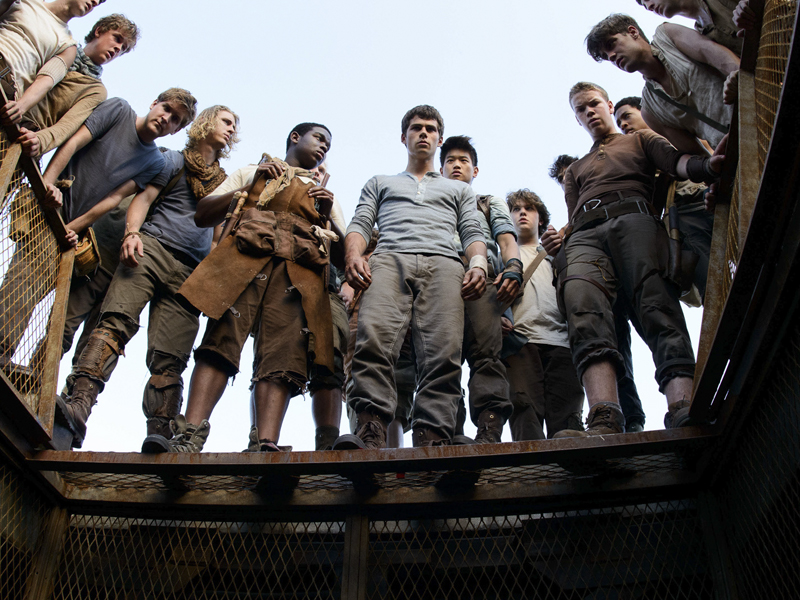
Another day, another young adult book trilogy turned into a movie franchise for Hollywood to milk for every cent. The film has everything we’ve seen before — a vague dystopian setting, an angst-ridden teen protagonist who believes himself to be the Very Special Hero and more saturated product placement warning us about the unrelenting power of Big Brother. These types of movies are widely popular nowadays, and it seems as though every one of them tries to have a “we’re like ‘Lord of the Flies’ and ‘1984,’ but we’re also different” mentality. That’s where “The Maze Runner” tries to proclaim itself, which it ultimately doesn’t. It’s tense and for the most part entertaining, but don’t expect to walk out of the theater thinking you took the red pill.
The movie’s premise starts out perplexing enough. Our Very Special Hero, Thomas (played by Dylan O’Brian of “Teen Wolf”) wakes up in a small elevator carrying him to the Glade, a small clearing boxed in by giant metal walls and occupied by dozens of other teen boys. Their de facto leader and eventual antagonist Gally (played by Will Poulter, who should win an Academy Award for those eyebrows) explains the rules to Thomas, noting how everything will work out fine so long as everybody stays in their place and does their job. A door (reminiscent of the garbage compactor from the original Star Wars) opens and closes every day at sunrise and sunset, and at night biomechanical monsters called Grievers roam the maze, searching for any poor soul dumb enough to stay within the maze past sunset. The acting in the movie is fine, even with the limited amount of work the main actors were given. But even so, the movie falls into the same rut “The Hunger Games” has by having too many nameless characters in the background that you’re supposed to care about.
Anyways, due to reasons of being the Very Special Hero (or something scientific that the movie doesn’t explain), Thomas has flashbacks that slowly reveal who put him there and how they did it. On top of that, he of course chooses the most dangerous job in the Glade, a runner. The runners are supposed to go out into the maze behind the wall and map out as much as they can in the hopes of getting out. For a while the tension heightens when Thomas begins exploring the maze. You know that his curiosity, matched with the wonders of the maze, will eventually lead to some big reveal, which will lead him to clash with the head of his commune, and because he’s the Very Special Hero he will of course emerge victorious.
Unfortunately, despite the tension and mystery of the movie’s premise, there are just too many plot holes that ruin the pacing, and eventually the experience. Thomas’ flashbacks don’t necessarily serve any importance to the movie as a whole — they simply reveal him as the Very Special Hero while giving away too little information for the audience to piece together anything. When the big surprise is revealed at the end, it raises questions about why some generically evil Big Brother-esque bad guys choose an overly complex plan for a simple end goal. How did complications not arise between the hormonal teen boys and the only female character when she was shoehorned into the third act? And of course, the movie had to ruin the mystery of the maze before ending on a vague and open-ended conclusion so that Hollywood could prepare for part two of its eventual trilogy. Also, the mostly British casting makes me wonder if the movie was subconsciously trying to be “Lord of the Flies.”
Turning dystopian young adult book trilogies into film trilogies is a trend that hopefully dies out soon. Every trilogy will believe that they’re special enough to reference and emulate the style of classic dystopian literature while attempting to brand themselves as different from other popular dystopian pieces in the marketplace. Is “The Maze Runner” a generally entertaining movie? Yes, mostly. Is it good enough to contribute to a cultural dialogue about the real-world issues that dystopian entertainment often tries to address? The answer is no, it’s not that special.
Rating: 2 stars








